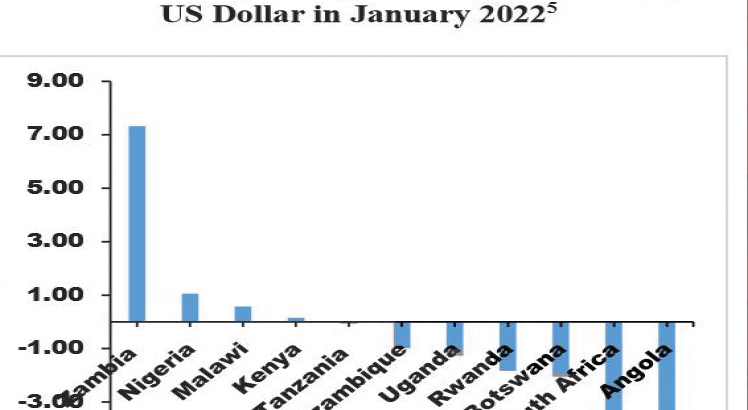EIU outlines threats to monetary policy
The Economist Intelligence Unit (EIU) says the raging war between Ukraine and Russia could threaten Malawi’s monetary policy.
The monetary policy, which guides the management of money supply and interest rates to meet macroeconomic objectives, is for now meant to entrench the recovery of the domestic economy from the Covid-19 pandemic and stimulate further growth according to the central bank.
But in a brief commentary contained in the Nico Asset Managers February Monthly Economic Report, EIU said there is little scope for further easing of the monetary policy, even if domestic demand remains weak.
EIU, the research and analysis division of the Economist Group of United Kingdom, says the next interest rate decision by RBM, at the end 2022, is expected to be upward, with further small rate increases over 2023 and 2026 as inflationary pressures build on the back of improved consumer sentiment.

Reads the commentary in part: “Considering recent developments, expected higher prices caused by the conflict between Russia and Ukraine will also raise concerns for the Reserve Bank of Malawi (RBM).
“Given the ongoing war, the course of monetary policy accommodation approach may now be affected by the impact of the Russia and Ukraine conflict.”
Meanwhile, RBM has also indicated that the development could compel central banks to implement monetary policy tightening measures that could jeopardise economic recovery plans.
The central bank, in its January Market Intelligence Report, indicated that tightening of the monetary policy stance in advanced economies could also develop into a risk of currency depreciations in emerging and developing economies, including Malawi, which could fuel inflation pressures.
RBM was, however, quick to mention that it will continue to monitor both domestic and global developments and will take necessary action to mitigate any risks to the inflation outlook.
In an interview, Malawi University of Business and Applied Sciences economics associate professor Betchani Tchereni said it was now an inevitable environment for a contractionary monetary policy rate, where the policy rate would be raised as inflation has already eaten into the bank spread.
“Where we stand, we have such a huge demand for imports which is likely to push the depreciation of the kwacha further, causing imported inflation.
“As such, it’s only prudent to control the supply of money so that people’s demand for imports is controlled,” he said.
Tchereni said the solution for the case of Malawi is not in monetary policy, but rather in trade and industrial policy.
The policy rate has been declining since November 2016 and was stable at 13.5 percent for the most part of 2020, before being revised downwards to 12 percent in November 2020.
During the last Monetary Policy Committee meeting held last month, RBM maintained the policy rate at 12 percent, relatively stabilising lending rates in commercial banks at the current average 12 percent.
RBM however revised its projection for annual average headline inflation rate for 2021 from 8.4 percent during the fourth MPC meeting to 10.4 percent during the first MPC meeting, reflecting the impact of hikes in commodity prices.






One Comment